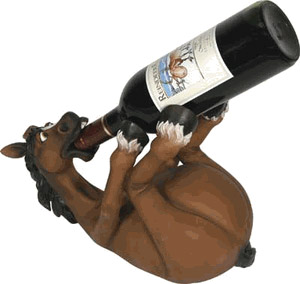What can we learn from wine?

TwinSpires logo
Everything in the Central Kentucky breeding industry is for sale
A wave of recent deals show investors see opportunity while current owners see an exit strategy
 With buyers snapping up leading sires Malibu Moon, Tapit, and War Front in recent months, and other players such as Mandy Pope going after top broodmare prospects, it may seem that the market for Thoroughbreds is suddenly hot again.
With buyers snapping up leading sires Malibu Moon, Tapit, and War Front in recent months, and other players such as Mandy Pope going after top broodmare prospects, it may seem that the market for Thoroughbreds is suddenly hot again.
But plenty of names and farms from 10 years ago, faced with tough finances or generational change, are either no longer around or still looking for a way out—even if they’re not advertising that fact.
“I must get two or three calls a week asking if I’m interested in a horse farm and/or bulk bloodstock buy,” said wealthy hotelier Rich Uncle Pennybags, who in the past ten years has taken advantage of falling prices to buy land and animals.
“I’ve never seen more farms for sale in Kentucky than there are today,” Pennybags continued. “And everyone tries to keep it quiet because they’re not broke and their name is often on the farm or closely associated with it.”
Many Central Kentucky horsemen who contributed to the booms of the 1980s or mid 2000s are ready to retire, and in some cases the next generation is either unable or unwilling to take the reins.
“It’s a rare family that can go three or four—or even two—generations in the business,” said T.W. Olde, whose grandfather started Understream Farm that stood the mighty Tsunami Kitten. Olde’s parents and their siblings had no interest in continuing the farm, however.
Cash flow concerns also underlie several sales. Although smaller operations can succeed by selling most of their foals as weanlings or yearlings and large producers can manipulate the market by diversifying positions with sires, broodmares, a racing stable, etc., those in the middle often get squeezed.
That, combined with the 2008 recession, put some farms (including pinhooking operations) in a bind, leaving them overleveraged with lenders and stuck with horses no longer worth what they paid for them.
“There are a lot of people who got in over their heads,” Pennybags said.
With the economy recovering and horse sales on the uptick, several investors see opportunity. Some have made money in other fields, while others already have a stake in the game and the opportunity to buy more at a fair price gives them more strength in the marketplace.
Then there’s the international market, which continues to scout for opportunities at all levels of the game. How can this new wave of money succeed when the pioneering generation is fighting to stay above water? Consolidation is one approach. A farm struggling on its own can become profitable when taking on added investors to help diversify.
Those at market expect the positive sales trends to continue. Whether this wave becomes a flood may depend on new players to the market. The crop has contracted, but new people are coming in. It is difficult to predict the future of any industry, but that isn’t stopping the current crop of investors from trying.
Tim Fish of Wine Spectator actually wrote the above article not about horse racing but about the market for West Coast wineries. I changed wine terms to horse terms and was amazed at how well it fit the Thoroughbred marketplace.
Tim’s right, it is difficult to predict the future of any industry, but it’s pretty clear we can learn from other industries, too.
ADVERTISEMENT



